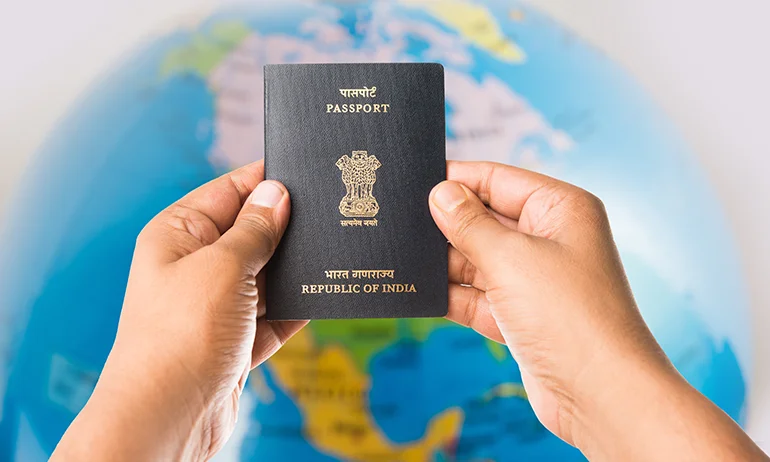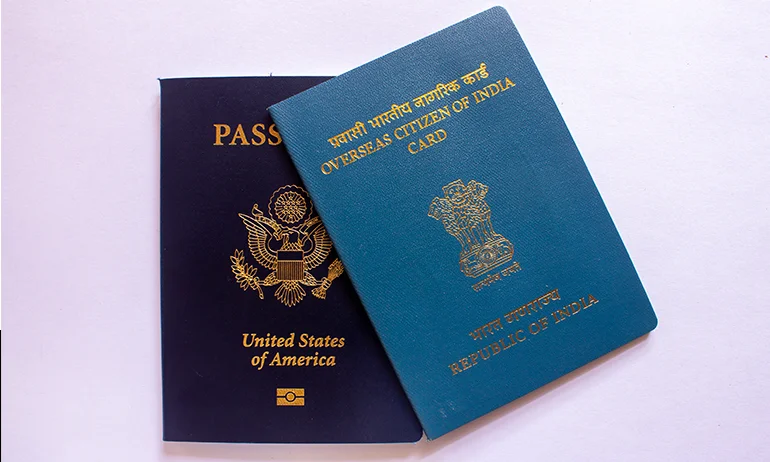Subscribe to get weekly insights
Always stay up to date with our newest articles sent direct to your inbox
Published on 27 Nov, 2024
Updated on 27 Nov, 2024
4091 Views
4 min Read

Written by Mudit Handa
favorite0Like
favoriteBe the First to Like
Indians have their foothold in almost every country of the world. With their intellect, calibre, and determination to succeed, Indians have contributed to the workforce of the nations where they’ve worked. According to the International Migration Outlook 2023, every year, 2.5 million Indians migrate overseas, making for the highest annual number of migrants in the world. Due to this, Indians are today known as the leading source of migrants to the countries of Organisation for Economic Co-operation and Development (OECD).
If any of your relatives are staying abroad, you must have heard the terms– NRI, OCI, or PIO. This article will explain in complete detail about all these types of foreign nationals and about the difference between NRI, PIO, and OCI.
NRI and OCI are two different terms given to Indian immigrants. Let us understand what they denote:

The following types of foreign nationals are eligible to register themselves as Overseas Citizen of India (OCI) Cardholders:
A person of Indian origin (PIO) is one who or whose ancestors were Indian nationals and who currently holds a foreign country’s citizenship, i.e. they hold a foreign passport.
PIO is the old term for an individual who or whose ancestors were Indian nationals but currently holds a foreign nationality.
The PIO scheme has now been discontinued. People holding PIO cards can now register as Overseas Citizens of India Cardholders u/s 7A of the Citizenship Act, 1955.
The primary difference between NRI, PIO and OCI is nationality.
Both Non-Resident Indians and Overseas Citizens of India are of Indian origin. However, the difference between them is that while an NRI ordinarily resides outside India and still holds an Indian passport, an overseas citizen of India holds a foreign country’s passport and is, hence, a foreign citizen.
The term “PIO” is an acronym for Persons of Indian origin, who were earlier registered under the 2002 PIO Scheme. However, this scheme was discontinued in 2015 and replaced by the Overseas Citizen of India registration.
There are various benefits that OCI cardholders can enjoy. Some of them are listed below:

All the benefits mentioned above are given to the OCI cardholder at par with the Indian citizens, subject to notifications issued by the Indian Government from time to time. These benefits were previously unavailable to PIO cardholders.
Yes. OCI and NRI cardholders are required to hold a Non-Resident Ordinary NRO account. This is a type of account where NRIs and OCIs can manage their income and deposits earned in India. with an NRO account for OCI/NRI, they can easily open savings accounts, current accounts, and Fixed Deposits in India.
These are the key benefits OCI cardholders enjoy as foreign nationals.
However, if you have relatives who are NRIs or OCIs and wish to visit them, you should prepare to safeguard your trip against financial loss due to an emergency.
Visiting your NRI or OCI relative living abroad is necessary to keep in touch with them, but what about your financial safety? The only solution to this problem is to cover your trip under a comprehensive travel insurance plan, such as the Care Explore plan by Care Health Insurance. This Travel insurance plan provides coverage against all medical and non-medical emergencies while you are staying abroad at your relatives’ home.
However, it is always advised that you carefully review the Care Group travel insurance policy brochure and prospectus. You can also talk to the customer care team for complete guidance on claim settlement.
>> Also Read: Which travel Insurance covers passport loss?
Disclaimer: Plan features, benefits, coverage, and claims underwriting are subject to policy terms and conditions. Kindly refer to the brochure, sales prospectus, and policy documents carefully.
favoriteBe the First to Like
List of 10 Countries Where the Indian Rupee is Stronger Care Health Insurance in Travel Insurance Articles
इंडिया से दुबई जाने का खर्चा क्या है? जानें, वीजा से जुड़ी जरूरी बातें Vipul Tiwary in Travel Tips
How to Find File Number in Passport - A Step-by-Step Guide Care Health Insurance in Passport
What Is Non-ECR Category In Passport? How to Apply in 4 Easy Steps? Mudit Handa in Passport
Why Senior Citizen Travel Insurance Is Essential? Gungun Bhatia in Travel Insurance Articles
5 Essential Covers to Check in Your Travel Insurance Plan Nidhi Goyal in Travel Insurance Articles
22 Essential Coverages in Single-Trip Travel Insurance Bhawika Khushlani in Travel Insurance Articles
Travel Insurance for Europe: What You Need To Know? Mudit Handa in International
Always stay up to date with our newest articles sent direct to your inbox
Loading...